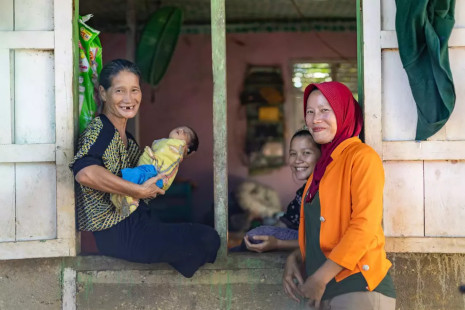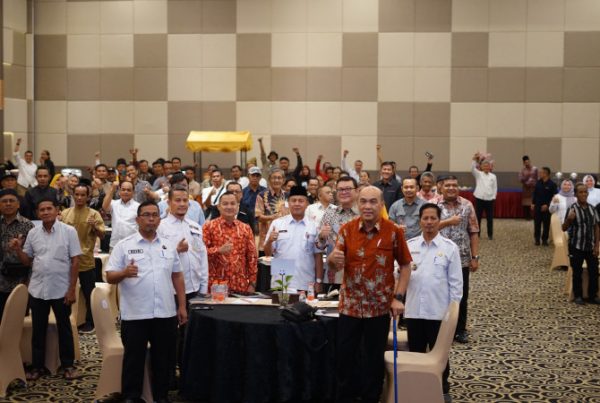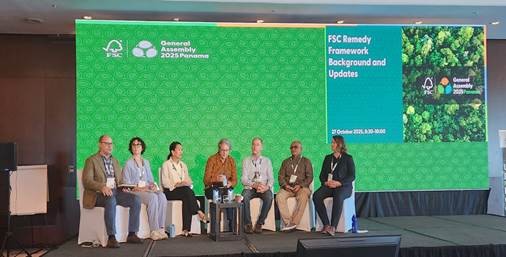I.B. Putera Parthama
More than two years after the Forest Stewardship Council (FSC) introduced its Remedy Framework, creating a pathway for forestry companies to address past environmental and social harms as part of a national healing process, implementation of the framework is finally taking shape.
For a nation home to one of the world’s largest industrial timber plantation sectors, this framework represents a critical opportunity to demonstrate that responsible forestry can include both accountability for the past and inclusion for the future. Indonesian company APRIL is the first company in the world to undertake the remedy process.
While much of the past plantation development was carried out legally under national policies to support economic growth, we must acknowledge that such development also created social and ecological impacts.

Community pre-dialog by Patala Unggul Gesang (PUG) in Riau. (Handout Photo)
Through this remedy process and years of evolution in forestry policy and regulation, we are showing that Indonesia is capable of addressing these past impacts while advancing further toward sustainable and socially just forest management. The framework opens a door for meaningful correction, collaboration, and healing, acting as a meeting point between moral responsibility and legal reality.
There is a shared determination that the remedy must move forward. This process is already fostering growing awareness, participation and expectations of remedy outcomes among hundreds of local communities. What is encouraging is that communities now see remedy not only as a company’s responsibility, but as an opportunity to rebuild relationships and strengthen their own livelihoods.
Levels of trust between communities, government, NGOs, and the private sector have begun to grow through this engagement and transparency.
However, the vital momentum achieved in the application of the Remedy Framework is now at risk. A new proposal, Motion 28, to be tabled at the FSC General Assembly next week, threatens to seriously hinder progress. It calls for onerous additional procedural requirements that could slow progress by years and undermine the trust that stakeholders have started to have in the process.
There are concerns that with Motion 28, impacted communities will have to wait much longer to see the benefits of remedy, companies might lose motivation to continue investing, and delays could call into question the FSC’s credibility as a global standard-setter.
At this point, what the process needs most is to move forward with consistency and clarity, not more complexity that risks making it too difficult to implement in practice. Every day of delay carries social and ecological costs. Degraded forests remain unaddressed, and communities that are ready to participate lose hope.
If the process continues with the support of all parties, Indonesia’s remedy journey can become a model for collaborative correction.
My hope is that Motion 28 that seeks to add these new layers of requirements will not be approved at the upcoming FSC General Assembly. If it is accepted, it will result in a significant loss for the Indonesian forestry sector and the wider community. Let us protect this progress, not obstruct or delay it.
I.B. Putera Parthama is the former Director-General of Sustainable Forest Management at Indonesia’s Ministry of Environment and Forestry.
This article was first published in the Jakarta Globe.




